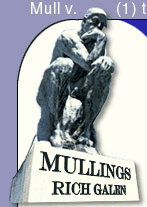|
|

|


An Uplifting Lift Off
Rich Galen
Monday February 20, 2012
 Twitter Twitter
Click here for an Easy Print Version
Fifty years ago today, Marine Col. John Glenn lifted off (NASA never used the phrase "blast off") from a Cape Canaveral launching pad and America was in the space business.
Glenn's was the fourth American flight into space. Alan Shepard and Gus Grissom road Redstone rockets just under 120 miles above the Earth's surface in what were called "sub-orbital" flights.
Enos, a chimpanzee, flew in the first American spacecraft with a living mammal into orbit when he went around the Earth twice on November 29, 1961. Enos survived the flight, but died less than a year later of dysentery which did nothing to ease the minds of engineers, physicians and astronauts about the hazards of space flight.
I am old enough to remember the early days of spaceflight. I can remember, and I still get chills every time I hear, the voice of fellow Mercury astronaut Scott Carpenter saying, as the count reached zero, "Godspeed, John Glenn."
This was 1962. We were less than twenty years from the end of World War II, and less than a decade from the end of the Korean War.
The Soviet Union had launched a man into orbit - Yuri Gagarin - ten months earlier in April 1961 after having launched the first Intercontinental Ballistic Missile, the first satellite into orbit (Sputnik), and the first mammal in space (Laika).
Glenn's spacecraft was named "Friendship-7" even though his mission was officially known as Mercury-Atlas 6. All of the Mercury capsules were named "xxx-7" in honor of the first seven Mercury astronauts.
The first two suborbital flights were launched using Redstone rockets which were essentially a suped-up V-2. It wasn't powerful enough to push the weight of a Mercury capsule into orbit so Glenn rode atop an Atlas rocket which was designed as an ICBM to carry nuclear warheads aimed at the Soviet Union.
The early 1960's were not a pleasant time. Neither, now that I think of it, were the late 60's.
As a matter of fact, the sixties were dreadful. We should have skipped the whole decade and gone from "Ozzie and Harriet" directly to "All in the Family" completely bypassing the "Smothers Brothers."
The risk of war with the Soviet Union was all too real.
The Soviets and their clients in East Germany built the Berlin Wall in August 1961 and President John F. Kennedy called up Reserve and Nation Guard units in response to East and West Berlin being physically divided further heightening tensions.
The "Bay of Pigs" enterprise had occurred in April, 1961 and the Cuban Missile Crisis came to a head in October 1962, but Kennedy had previously broken off diplomatic relations with Fidel Castro's regime early in 1961.
This was the backdrop to John Glenn's flight and why it held such great significance to the psyche of America.
We needed a win - even a win nearly a year after Yuri Gagarin - and John Glenn gave it to us.
America was glued to its black-and-white TVs for the four hours, fifty-five minutes, and thirty seconds of Glenn's flight from lift off to splashdown.
To show how little we knew about how to do this, Glenn landed in the ocean about 40 miles short of his target because flight controllers hadn't considered the possibility that spacecraft would lose weight during its trip due to using up fuel and other consumables.
That lesson was re-learned during the homeward trajectory of Apollo 13 when controllers realized the spacecraft kept drifting off course because it wasn't carrying the expected load of moon rocks, having had to forego a lunar landing.
In the face of these almost shoot-from-the-hip space missions, President John F. Kennedy issued his famous national challenge to put a man on the moon before the end of the 1960's in a speech at Houston's Rice University on September 12, 1962 - just seven months after Glenn's flight.
In that speech he said,
We choose to go to the moon. We choose to go to the moon in this decade and do the other things, not because they are easy, but because they are hard, because that goal will serve to organize and measure the best of our energies and skills, because that challenge is one that we are willing to accept, one we are unwilling to postpone, and one which we intend to win, and the others, too.
It was a different time. It was a confusing and dangerous time.
But, John Glenn's liftoff was uplifting and helped set America on a path � to the moon.
On the Secret Decoder Ring page today: A link to the 204-page NASA report of the Mercury-Atlas 6 mission (well worth a few minutes of browsing) and to Ozzie and Harriet, the Smothers Brothers, and All in the Family.s
Also a Mullfoto showing the current price of gasoline in Old Town Alexandria, Virginia and a worrisome Catchy Caption of the Day.
-- END
Copyright © 2012 Barrington Worldwide, LLC
Become a
Paid Mullings Subscriber!
(To join the FREE mailing list or to unsubscribe Click Here)

Current Issue |
Secret Decoder
Ring | Past
Issues | Email
Rich | Rich
Who?
Copyright �2007 Barrington Worldwide, LLC | Site design by Campaign
Solutions. | |
|



